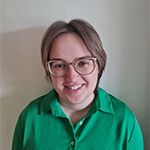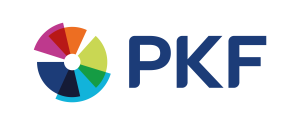Why did you choose this profession?
When I completed my doctorate degree in experimental physics, I realised that I wanted a more stable career with more chance of career progression than could be found in academia. I was not sure where to start looking but after speaking to a number of people, I came to the realisation that a lot of the analytical and problem-solving skills that I already had and those I had gained during my research degree would be applicable in the area of accountancy.
I researched the area to get a better understanding of whether it would suit me and there were a number of elements that appealed to me. I like to be challenged and learn new things and the training required provided structure to the process. The ACA qualification is internationally respected, and this told me that there would be lots of opportunities available to me after qualification.
How did you get your job at BGM?
Whilst researching the area of accountancy I spoke with accountants that I knew to learn more about the day-to-day work involved. From these discussions, I decided that I wanted to join a firm where I could work with a range of different clients in a variety of areas. Bright Grahame Murray was one of the firms mentioned by people that I spoke to and so I felt comfortable applying to what was clearly a well-respected firm. The application involved sending a covering letter to one of the partners describing my career up to that point and my reasons for applying. I was then invited to an interview with that partner and one of the managers. After the interview I was given a tour of the office where I met a number of the current trainees. Even from the start of the interview I felt comfortable talking with everyone as they were all very welcoming and friendly.
What are your main duties?
As soon as I joined Bright Grahame Murray, I began work on preparation of accounts for a range of different clients including individuals, charities and small to medium sized companies. I soon was able to work on audits as well. These have been for clients in a variety of sectors including publishing, property, insurance and technology with each new field bringing new things to learn and new challenges. The more audits I work on, the more responsibility I have, and my role now includes speaking with clients and supporting more junior members of the audit team.
What skills are useful in this profession?
I think one of the most important skills you can have in this profession is attention to detail. This allows you to better apply professional scepticism during audit work and prepare high-quality accounts. Analytical skills are necessary, but equally important are communication skills. It is important to be able to converse with both clients and colleagues in a professional and approachable manner.
One of the main challenges is working towards the ACA qualification at the same time as working and therefore you will need to have good organisational skills and self-motivation to ensure you can stay on top of your study and your work.





